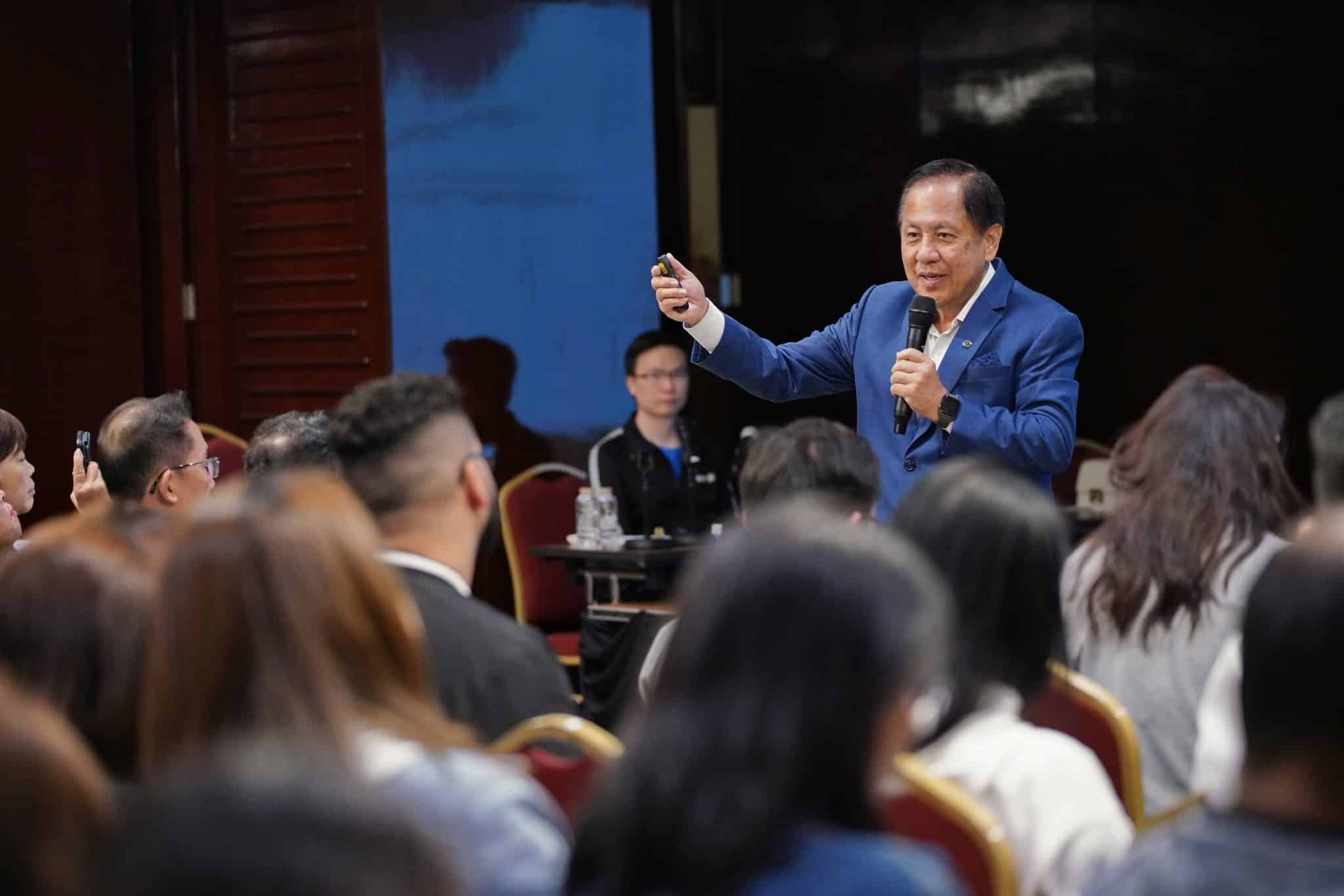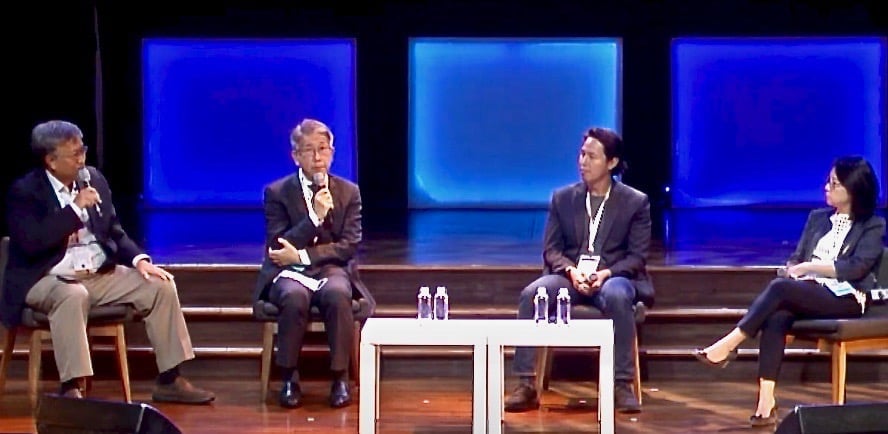Arthur Kiong’s improbable journey from radio DJ to Far East Hospitality CEO
by Gemma Koh // September 25, 2020, 12:31 pm
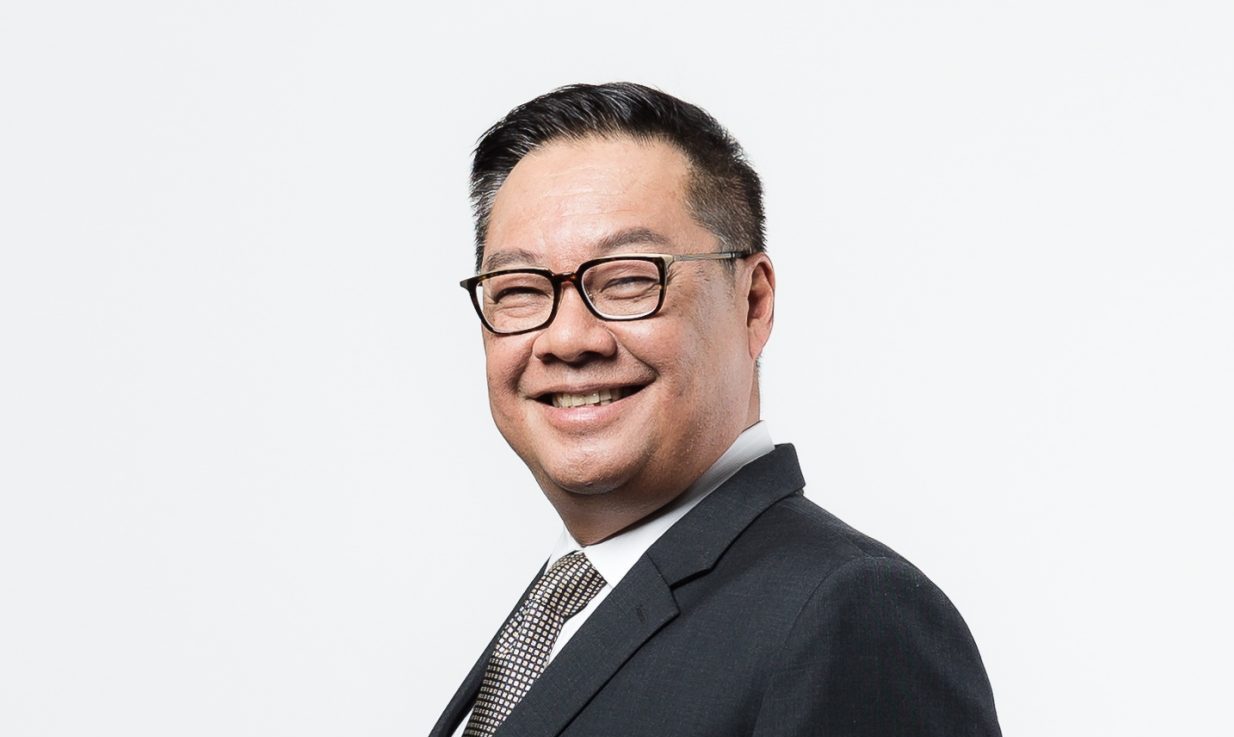
"You can't make these things up," Arthur Kiong said of the incidences of Divine grace in his career. All photos courtesy of Arthur Kiong and Far East Hospitality.
He instigated an advertising campaign in New York City that was considered scandalous. (But was later promoted because of it.)
Could not come up with high-priority publicity in the critical months leading up to the opening of a new Bali hotel. (It turned out to be a blessing when the Gulf War broke out.)
For reasons unknown, did not do well enough in his ‘A’ Levels to get into university. (He is now CEO of Far East Hospitality.)
Even his path to becoming a radio DJ at age 21, which made him a local celebrity, seemed like something that only happened in movies.
“I can tell you with 100% certainty that sort of thing just doesn’t happen.”
The soundtrack to his life reads something like this: You’re backed into a corner. There’s just no way out. Then something extraordinary happens. It turns out to be for the best. You are celebrated as a hero. And you know that has nothing to do with you.
“You can’t make these things up,” Arthur Kiong, now 60, told Salt&Light wryly.
He uses the following analogy to show “how improbable these things are. It really is this uncanny series of occurrences”.
“Imagine if I were an avid golfer, and I’m serious about the sport. I would practise every day. And I know how far, how straight, the ball can go. Now on the day of the tournament, I drive the ball and it gets caught by a bird. The bird drops it onto a tree. A squirrel takes the ball, runs down the tree and puts it into the hole. The crowd cheers in amazement: Wow, what an incredible shot!
“If I had not practised very hard, I may think that’s beginner’s luck. But because I really know my sport, I can tell you with 100% certainty that sort of thing just doesn’t happen.”
It is safe to say that Someone bigger than he has been looking out for him, says Kiong, who tells Salt&Light how the twists and turns in his life have led him to believe in how God was working in his life.
You had a rocky start to your working life.
I had always been in the best class. But for some obscure reason, when it was time to ace my ‘A’ Levels and get into university, I didn’t manage to do that. It was completely devastating because I never considered such a possibility.
I tried to find other avenues like going abroad; I didn’t care if I had to go to university to learn how to do weeding or poetry reading. But I did not find a way.
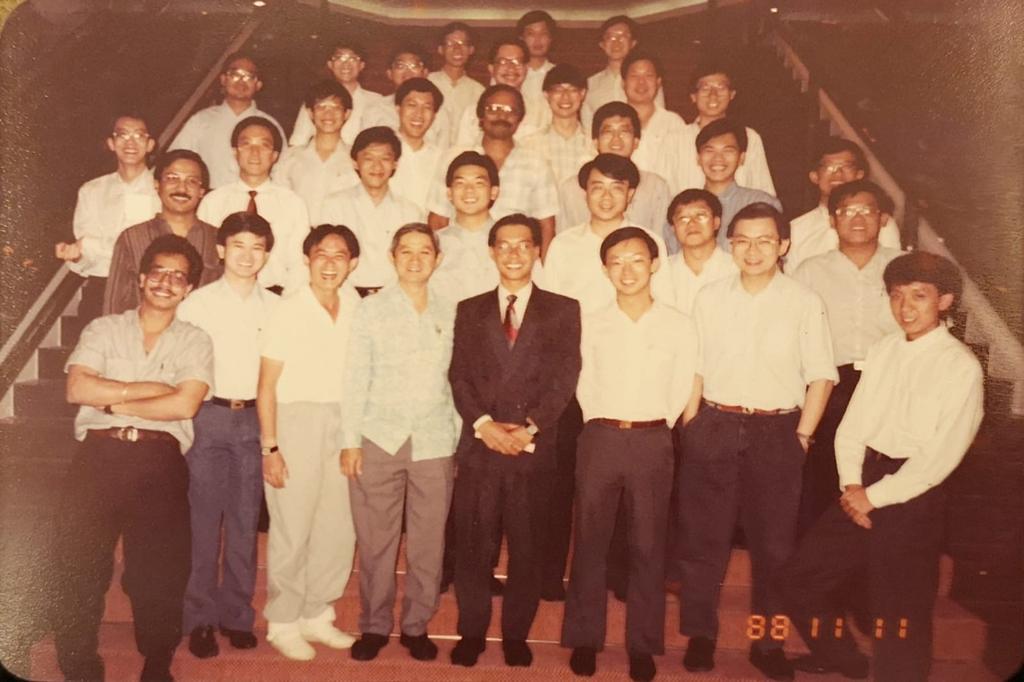
At his class reunion in 1988, Arthur was the only one in a suit – he was working at the hotel where the gathering was taking place. The reunion “included doctors and lawyers. Everybody I knew had a degree. I was the only guy without a degree”, said Arthur.
It was incredibly humiliating. I was in the throes of depression. And as a result, got into all the self-destructive stuff you tell your children not to do.
Despite living a debauched, decadent lifestyle, I somehow never got myself into harm’s way. That was incredibly amazing.
“I was completely out of my element, knocking on doors of beauty salons, trying to hawk a slimming product.”
I asked myself: “Why did others around me who were involved in such activities get into harm’s way? And I’m somehow unscathed?”
I began to wonder if it was divine intervention.
But sceptic that I am, I tried to rationalise everything: “Because you are so lucky.” “Maybe I was not as bad as I made myself out to be.”
At that time, I was working as a sales executive. I was completely out of my element, driving a van, knocking on doors of beauty salons, trying to hawk a slimming product. It was incredibly miserable but I made a living through that.
How did you get your big break as a radio DJ?
I decided I was going to apply to the Singapore Broadcasting Corporation (as MediaCorp was then named), because I had an interest in behind-the-scenes work.
By some incredible mistake or happenstance, they told me to take a voice test. And, lo and behold, they were very impressed because there were not too many Chinese males who could pronounce the words “Thursday the thirteenth”.
So before I knew it, I became an announcer at the Singapore Broadcasting Corporation. And overnight, everybody knew me because, at that time, there was just one radio channel, 90.5 FM. Not like it is today with multiple radio stations.
What possessed you to give up celebrity-dom for hospitality?
At the height of – in parentheses – my success, I came to a realisation that this is not the future that I want. And that I must leave to do something else.
“It was not through my own ability, but through the act of the divine that resulted in something so extraordinary.”
I was 21 years old, enjoying the fame and the excitement of a job that involved getting free drinks in all the nightspots in town. I had the opportunity to interview David Bowie, Laura Brannigan … all the big acts of the 1980s.
I couldn’t believe people are paying me to do this. And everybody thinks you’re something special.
Giving that up to go to Shatec (Singapore Hotel and Tourism Education Centre for aspiring chefs and hotel professionals) to be a waiter in a restaurant?
And to take the humiliation of people asking you: “Oh my goodness. Aren’t you so-and-so? What happened? Why are you here serving me a beverage?”
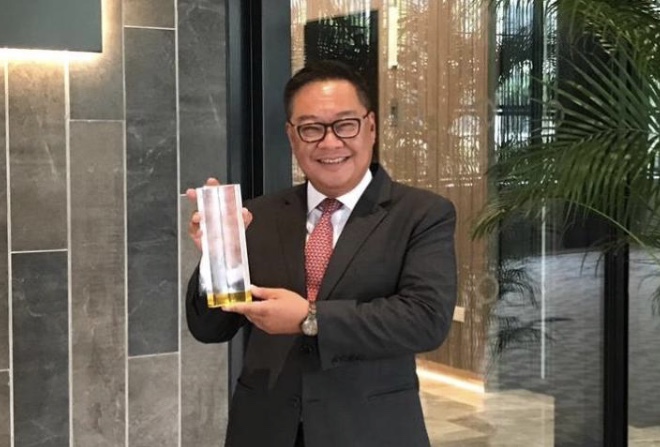
Arthur was honoured as an Outstanding Alumnus (Hospitality) at Shatec’s SHINE Award 2018. Photo from Far East Hospitality’s LinkedIn.
When I look back, obviously I made the right decision. But at that time, I didn’t know it. And if you think it came because of my own ambition, my own genius, my own resolve or my own maturity, I can tell you that it is not so.
And then in the course of my career, I have had many, many, many opportunities or circumstances where things happened to me in a fashion that is rather incredible, and nothing to do with my own ability. They saved me.
And I cannot help but conclude that it was from a divine force that is larger than myself.
I read about one such instance that happened in NYC. Would you tell us about it?
I was selected to be the marketing director of two new luxury hotels that were opening in New York. The brand that I was representing had been out of the market for a few years, so it was incredibly important that these two hotels were well-positioned and launched well.
In the United States, there’s no lack of good marketing professionals. And so to have a Singaporean go to the States to compete with the best was a dream. But when I arrived there, I was told very quickly: “Arthur, this is the big league. The way we work around here is very completely different from where you came from.”
“So here I was, 40 years old, I had brought my entire family to New York, I felt my career had just been decimated.”
The issue that they were referring to was: You don’t brief the advertising agency directly. I was conflicted: I didn’t believe we could just go with your standard corporate ad because we were trying to articulate a message that was out of the ordinary. So I called the advertising agency and briefed them: “I want something that is somewhat disruptive, somewhat irreverent. I only have a split second to the catch the attention when someone flips the page, and I must be able to communicate that we’re back in your city.”
The advertising agency gave me an ad of the Statue of Liberty with both hands – instead of one hand – raised.
I liked that it was beautifully shot, it was simple and it was clear.
When I showed it to the corporate office, I got a really serious telling off. They said: “There are so many levels on which this is wrong, we don’t know where to begin. You have contravened an order not to speak to the agency. This ad has nothing to do with the tone and style of our brand. And you have defaced a national monument.”
“It was an example of unmerited grace. I certainly didn’t deserve it. I didn’t do what I did with noble intent.”
I went home with my tail between my legs.
But I was dissatisfied. I thought: “I’m still right.” I took the ad and showed it to the owner of the hotel. He liked it, and spoke to the corporate office. A fight ensued, but the owner prevailed.
The corporate office told me: “God help you. You’ve started a war. You are disloyal and nobody wants to work with you.”
So here I was, 40 years old, I had brought my entire family to New York, I felt my career had just been decimated.
After the ads ran, Osama Bin Ladin flew the planes into the Twin Towers. I was told: “Your ad with the Statue of Liberty celebrating? You know what bad taste that is? You are the reason why we are pulling out all the ads.”
One ad in The New Yorker on September the 13th could not be pulled in time. And when it hit the newsstands, the switchboard of the hotel company lit up like a Christmas tree.
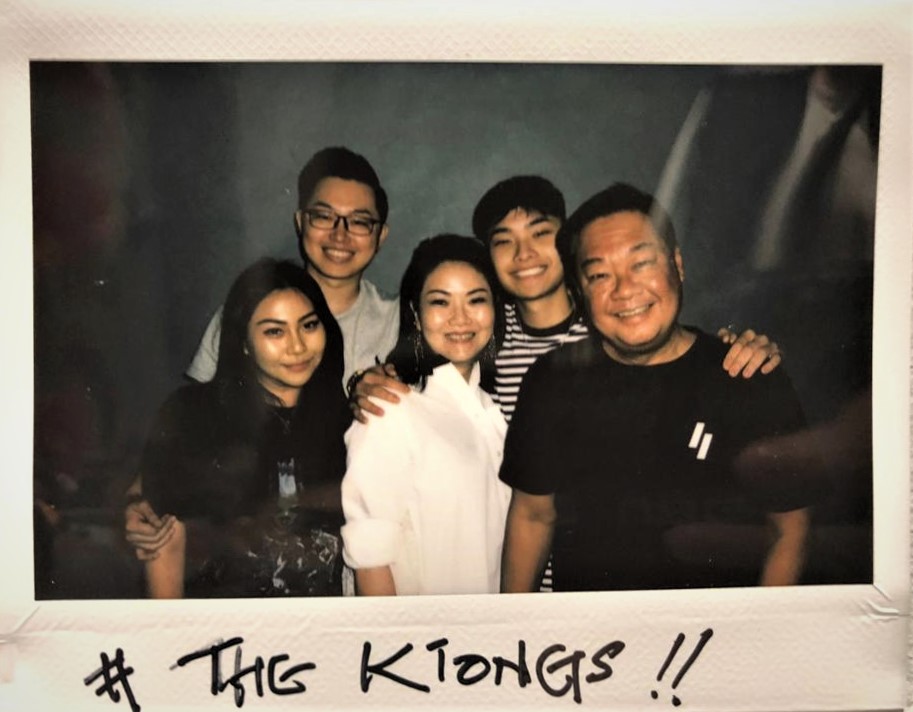
Arthur with (from left) daughter Naomi and her husband Wei Ru, wife Wai Yin and son Chris. About six months ago, Arthur became a grandfather to Naomi and Wei Ru’s baby boy.
People were saying: “How did you come up with an ad that resonates with all of us, that this hotel company will not be cowed by terrorism. What courage you are showing that, despite everything, you continue to invest and will open in New York City.”
That ad became a huge success. From advertising, it went onto T-shirts, onto mugs, onto postcards, it went viral. And we had a letter from the US generals in Afghanistan, who said: “Your ad hangs in our command posts because it serves as a reminder of what we’re fighting for, and why we’re here.”
“Because I know what I’m doing, I can tell you with 100% certainty that sort of thing just doesn’t happen.”
Overnight from zero, I became a hero. And that hotel opened extremely successfully.
And I sat there and thought to myself: How the Master Weaver weaved my flaws and my arrogance. And He has such grace and mercy, that despite myself, He has chosen to bless me.
It was an example of unmerited grace. I certainly didn’t deserve it. I didn’t do what I did with noble or holy intent. It was a case of rebelling against the establishment, with my gut, doing what I believed in. But yet, I know that it was not through my own ability, but through the act of the Divine that resulted in something so extraordinary. That situation changed my life.
How did your faith evolve?
I was born and raised in a Christian family, and was a church-going, Sunday School-attending Christian and gave my life to Christ.
But in my 20s, I started to really struggle with my Christian walk. I looked at how Christians lived. And I was completely disillusioned. Because where is the love, joy, peace, kindness, patience, gentleness and self-control? (Galatians 5:22-23) It was not always manifested in the way Christians conducted their lives.
Then I looked at the Christian nations of the world versus the non-Christian nations. Are they truly better off? These things really affected me.
So I struggled to understand God on an intellectual level. In my quest of searching for those answers, somehow, I sensed his presence and learnt to appreciate His divine workings in my life. Despite trying my darndest to deny it.
I have experienced divine intervention many times. But each time when that happened, I was in amazement, on my knees thanking the good Lord. But then after a week or two, I stopped and rationalised: “Maybe there is another explanation.” And of course it all points to: “Maybe I’m quite good, maybe it is by my own strength.”
“Committing your life to Christ means that He controls everything. Was I ready to lose control?”
It happened on a regular basis in my early 50s. Something that jolted my awareness of the presence of God. It reached a level whereby I couldn’t deny Him anymore. And very reluctantly I gave my life again to Christ.
I was extremely apprehensive because committing your life to Christ means that He controls everything. Was I ready to lose control? There are things that that I certainly want to be in control of. So that struggle was difficult, but I gave my life and submitted in obedience to God.
My story is still about faith in progress. It encompasses:
1. The continuous searching and the continued quest for understanding God;
2. Continually learning to sense His presence and His goodness;
3. Continually submitting in obedience even while I’m struggling with questions.
And so, where I am currently is: I am submitting to His will. I want to do His work, I want to spread the Gospel through deeds and not just through talk.
My work is now my ministry. I try to profess the testimony and the message of Jesus Christ, through the way I conduct myself at work, rather than standing at the pulpit and doing it the traditional way.
So demonstrations of grace came before understanding?
There were so many opportunities such as New York, where there was such demonstration of grace. So, that came first, and then my understanding came later.
Ravi Zacharias said: “If you want to know whether Christianity is true, you measure it against four big questions in life: Morality, meaning, origin and destiny.
“You use three tests: Is there empirical adequacy? Is there logical consistency? Is there experiential relevance?”
“If you want to know whether Christianity is true, measure it against four big questions in life: Morality, meaning, origin and destiny.”
In my case, experiential relevance came before everything else. Through that I found logical consistency and empirical adequacy.
It’s a struggle because the path to faith is really paved with a lot of distractions.
I would like to challenge Christians: If we come across as being judging, holier than thou, everybody is wrong and only we are right, and in the process, go about unwittingly offending others, I’m not sure that’s the way to win people to Christ.
And so, what is the standard? Look at the way Jesus lived. He loved everybody, He interacted with everybody. He stood apart, and He stood up to the Pharisees, but He wasn’t arrogant. He wasn’t unrelatable.
Has God ever steered you back when you thought that you were right?
In my early 30s, I managed to get a job at the Mandarin Hong Kong – then regarded as the best hotel in the world – as the director of sales even though I spoke no Cantonese, had never led a sales team in my life, and didn’t know Hong Kong’s market or geography.
So here I was feeling rather proud of myself, saying: “See, I don’t even have all this and yet I can get this job. So I must be something special, right?”
A friend of mine brought me to a service at the convention centre in Hong Kong. Everyone was singing and a pastor was praying. And he said: “If any one of you feels that God is reaching out to you and speaking to you now, I want you to stand.”
“I was feeling rather proud of myself saying: ‘See, I don’t even have all this and yet I can get this job.'”
I found myself jumping to my feet. I remember thinking to myself: “What are you doing, man?” My wife looked at me and said: “Why are you standing?”
I was shutting my eyes really tightly because I was truly very embarrassed. And I hoped that everybody’s eyes were closed and nobody saw me standing.
Then the pastor said: “I would like you to feel the Spirit, I would like you to raise your hands.” And my hands went up, and I was going: “This is so embarrassing. Why are my hands up?”
And then at that moment I heard God speak. It was the only time in my life where I could say that I felt God speaking to me. It wasn’t a loud voice, the kind depicted in movies. It was a quiet voice that came in like a thought: “For all the things I have done for you, at no time have you given Me thanks.”
At that moment, I bawled. I wept, sobbing like a child. But thinking to myself: “Stop, stop. Get a grip of yourself, man.” I sobbed through the next song till the end of the service.
It was a quiet voice that came in like a thought: “For all the things I have done for you, at no time have you given Me thanks.”
After that experience, I felt the joy and a feeling that the weight of the world had been lifted from my shoulders. The feeling was so amazing.
I wanted to feel that again. I went back the next week. I was standing and raising my hand, waiting for that cathartic unleashing of the Holy Spirit. But boh leh. When I was seeking it and was praying for it, there was nothing. I couldn’t replicate it ever again.
But back to that moment when I wasn’t prepared for it, and I was feeling quite smart that I got the job on my own, the finger of God gave me a little touch as if to say: “Just to let you know who is really in charge.”
How were your intellectual issues on the resurrection answered?
I think all Christians must be convinced and have to be clear that Jesus did bodily rise from the dead. Because without that, how can you profess to believe in Jesus?
“The finger of God gave me a little touch as if to say: ‘Just to let you know who is really in charge.’”
Nobody’s asking anyone to be an apologist, but if Christians are easily stumped, then we will not be good testimonies.
Gary Habermas and Michael Licona are two authors of wonderful materials to understand about the resurrection from a factual, biblical scholarship point of view.
Another person that is very good in terms of explaining the resurrection is Lee Strobel, a Chicago Tribune law journalist, who wrote The Case for Christ, which was turned into a movie.
He started out as an unbeliever wanting to find out whether Jesus bodily rose from the dead, because he thought it was a myth. He talks about the evidence for Jesus rising, eyewitness accounts and the empty tomb to understand why the resurrection of Christ is established as fact, based on the evidence of thousands of years. And every day there are thousands of people trying to disprove it, and yet it still manages to hold up to scrutiny.
One of the best quotes I’ve heard is from (American pastor) Andy Stanley who said: “When someone predicts their own death, and resurrection, and pulls it off, I’ll just do whatever he says.”
Part 2 of Arthur Kiong’s story on how 9/11 and SARS helped him navigate Covid, time management as a CEO, and how his work is also his ministry is here:
“God is the Master Builder”: Datuk Edward Ong, founder of the Sutera Harbour Resort
We are an independent, non-profit organisation that relies on the generosity of our readers, such as yourself, to continue serving the kingdom. Every dollar donated goes directly back into our editorial coverage.
Would you consider partnering with us in our kingdom work by supporting us financially, either as a one-off donation, or a recurring pledge?
Support Salt&Light